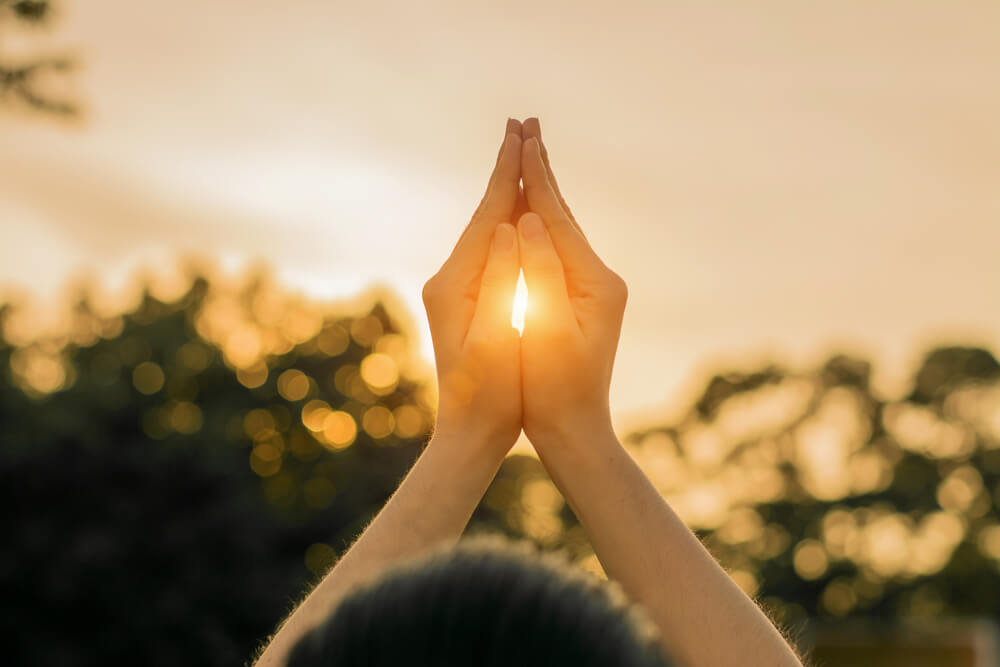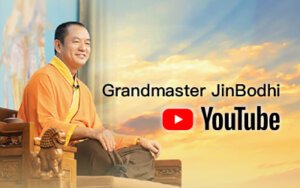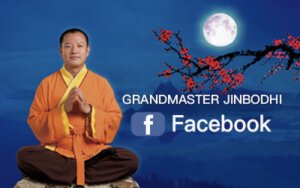Meditation is a central practice in Buddhism, with immense benefits for our body, mind, and soul. Are you still interested in learning how to meditate in Buddhism? Let’s have a look at a comprehensive, step-by-step answer in the following paragraphs.
How to Meditate in Buddhism for Beginners
Meditation is a technique used by Buddhists for personal development and for seeing reality beyond superficial appearances – in the pursuit of enlightenment. And it does what it’s supposed to. Meditation can bring us physical and mental health, wisdom, and clarity, as well as increased empathy and compassion.
Please set yourself in a relaxed and positive frame of mind, locate a peaceful environment, and make meditation a consistent habit.
How to Meditate in Buddhism: Getting Ready
- Set aside time for yourself to practice.
- Be sure you’re not too exhausted or overly hungry or full.
- Dress in loose, relaxing clothes.
- Try to find a calm, quiet, and relaxing spot.
- Choose a comfortable posture to sit in.
- Set a minimum time to meditate.
- Think about the purpose of your meditation.
How to Meditate in Buddhism: Mindfulness Meditation
- Relax your body and mind.
- Focus your mind on the guided visualization instructions.
- Let your thoughts come and go.
- If your mind wanders, gently bring it back.
- Learn to ignore frequent interruptions.
- Lengthen the time you spend in meditation.
How to Meditate in Buddhism: Loving Kindness Meditation
- Connect with the divine loving-kindness of Buddha. Remember your boundless compassion and kindness and consideration for all living things.
- Cultivate feelings of kindness and compassion.
- Send forth your positive intentions to all sentient beings.

How Do I Know If I’m Meditating According to Buddhism?
How can you practice Buddhist meditation correctly and track your progress? You may expect both good times and hard times as you dive into Buddhist meditation. But you will see the following indicators of improvement in your meditation practice if you are persistent and patient.
You Feel Refreshed and Revitalized
You wake up excited about the new day and all it may bring. After meditation, many of us feel the indescribable lightness and easefulness about our bodies. Tension dissolves, the pain dissipates, and our body feels recharged. Meditation can increase cognitive and emotional control, lower blood pressure, reduce stress, worry, and depression, assist with insomnia, and even delay the brain’s aging process.
You Have Better Sleep Now
Poor sleep negatively affects our physical, mental, and physiological well-being. Practicing Buddhist meditation is a safe and effective way to get some shut-eye. Why? Read about how meditation can help you get a better night’s rest.
You Get Rid of Negativity
Negativity is generally the first thing to go when we start meditating in Buddhism regularly. Why? As meditation purifies our body and mind and connects us with the universal and divine, we become re-energized and revitalized. Therefore, our vital energy increases as our compassion and wisdom, and naturally adopt a more positive outlook on life. We become more tolerant and loving towards others and ourselves, focusing on our spiritual growth and making the world better.
You Feel Much Less Stress
When we fret about the past or the future, we set ourselves up for a lot of stress and worry. To “live in the present” may seem a cliche, yet it has tremendous benefits for one’s well-being. Even while it’s important to look forward and make plans, as well as to look back and take lessons from the past, we don’t have to stay there. Practicing Buddhist meditation can help us relieve stress by keeping us anchored in the present, and boosting our natural energy and optimism.
You Have More Room in Your Mind
It’s easy to let our problems, fears, and concerns overtake us. Practicing Buddhist meditation creates mental space for kindness and compassion. Since we’ve been practicing compassion and empathy, we’re better able to be helpful and kind, to see things from other people’s points of view, and to refrain from passing judgment (at least sometimes).

Frequently Asked Questions about Meditating in Buddhism
The following paragraphs will address some more issues that are often posed when learning how to meditate in Buddhism correctly.
How Long Should I Practice Buddhist Meditation?
Buddhist meditation sessions may last as long or as little as the practitioner desires. Beginners can start with short periods of meditation; your daily meditation session can be 30 minutes, and work their way up to a few hours for a single session. When you’ve finally settled down, meditation can begin in earnest. Stay seated for a sufficient amount of time to get through the relaxation and calming phase and still have time left over to reap the benefits of Buddhist meditation.
Is It Bad If I’m Thinking About Something Else During Buddhist Meditation?
It’s not bad; in fact, it’s very typical. Your mind is an intricately designed mechanism with the capability of thinking as one of its primary functions. In Buddhist meditation, we learn to focus our thoughts, letting stray thoughts come and go. The challenge comes in letting them go as quickly as they came, rather than becoming attached to distractions that arise. This requires time and effort, but each meditative encounter is a positive development.
Should I Close My Eyes During Meditation?
Not necessarily! Each meditation technique may have its unique instructions. For example, when chanting, you may either keep your eyes open or close them. For guided visualization, it is recommended to close your eyes so you can better visualize according to the instructions. For walking meditation, your eyes should definitely remain open throughout the practice for the safety of yourself and others!
Even after reading some FAQs and going through the fundamental steps on how to meditate in Buddhism correctly, you may still have questions that may be answered by an expert or by participating in a guided meditation session only. Along similar lines, whether you’re interested in joining Bodhi Meditation online or in person, you’ve come to the right spot.

